The start of preschool is a significant milestone, often met with a blend of excitement, joy, and some inevitable tears and uncertainty from both children and parents! Preschool is designed to ease the transition from family life or a childcare center to school. These programs help develop children's communication, problem-solving, and thinking skills while familiarizing them with school routines and rhythms.
Talk About Preschool: Discuss with your child the exciting adventure that preschool will be. Speak with their future teacher and principal to gather detailed information about daily activities, bathroom routines, and meal times. This will help you address any questions your child might have, easing their concerns.
Plan a Celebratory Breakfast: Make the morning special with a celebratory breakfast and a small gift, like a new bag or a Starting Preschool Certificate. This can help your child feel important and excited about their new role.
Tip 1: Don’t Rush Through the Morning
A rushed morning is stressful for everyone, especially on the first day. Wake up early enough to enjoy a calm, unhurried breakfast, which helps avoid last-minute tantrums and ensures you arrive on time.
Tip 2: Arrive Early
Arriving early gives your child time to settle in before the crowd arrives. This also provides extra face time with the teacher, offering additional reassurance.
Tip 3: Bring a Comfort Object
If allowed, let your child bring a favorite stuffed animal or blanket. This can make the new environment feel less intimidating. As they become more comfortable, they can gradually leave the comfort object in their cubby.
Tip 4: Put on a Happy Face
Even if you’re anxious, try to stay positive. Your child will pick up on your mood, so if you seem confident and upbeat, they’re more likely to feel the same way.
Tip 5: Hang Around, But Don’t Hover
Many preschools encourage parents to stay for part of the first few days. If possible, stick around to give your child the courage to explore. Gradually step back as they become more secure, letting the teacher take over.
Tip 6: Keep Goodbyes Short and Sweet
When it’s time to leave, keep your good-byes brief and positive. Smile, give a hug, and let your child know when you’ll be back (“I’ll pick you up after lunch”). Avoid sneaking out, as this can make your child feel insecure.
Remember, it’s normal for kids to have a meltdown when separating. Even if your child is upset, they’ll likely calm down shortly after you leave. If the adjustment takes longer, don’t worry - preschool teachers are experienced in handling these situations. And don’t be surprised if your child is too happy and busy to let you know everything they've been doing when you pick them up!
If you're looking for quality childcare on the Hibiscus Coast make sure you check out Fame, where your children grow and learn with confidence!
Teaching your baby to swim might help them overcome their initial fear of water and provide a great excuse to have some fun and exercise at the same time, but it could have other benefits as well.
Recently, researchers from Norway and Britain found that children who had taken baby swimming classes did better on tests involving gripping and reaching as well as balance, compared to children who had no experience swimming as babies. This helps their physical progress later in life as well, along with providing them with some essential social skills.
All babies have primitive and postural reflexes, one of which is the Mammalian Diving Reflex, which is strong between 0-6 months. The Mammalian Diving Reflex is most well developed in children, and is gradually decreased with age. It enables them to naturally breath-hold when submerged, and this can be seen quite clearly when you plunge your baby into the water during a swimming lesson or in the family pool. When baby’s face enters the water covering their forehead and nose area; the body automatically redistributes the blood flow ensuring the 'key' organs such as the brain and heart, receive a constant supply of oxygen.
This reflex is perfectly natural and leaves around eight months of age. Gradually this reflex turns into the 'Dive Response', which continues into adulthood. As your baby is only submerged for a matter of seconds during a lesson, it is the 'Dive Response' that then kicks in and helps them as they learn to swim. Swimming lessons will ensure that they are comfortable with this reflex, and see them becoming happier and more confident in the water.
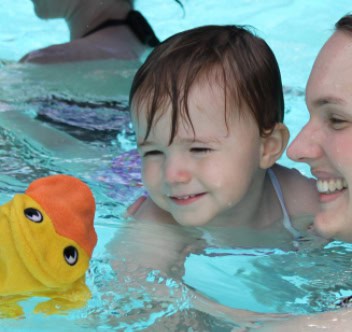
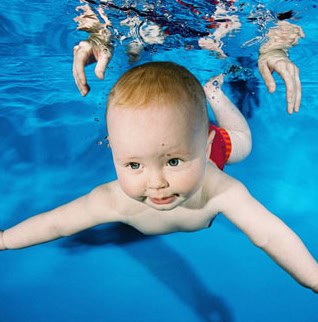
Gross and fine motor skills are also strengthened and coordination and balance are enhanced in babies who enter the water early. For this reason the younger your little one starts in lessons the easier the transition is to enjoying the water. A baby who is used to being stationary can move about independently in the pool as they learn balance and coordination. The motion and sensation of the water gives them an awareness of self that otherwise would not be gained at such a young age, and sets them up for life.
Additionally, early experiences in water allow little ones to better develop their psychomotor skills, because there they can move more freely and begin to understand concepts of distance and movement. Their cardio-respiratory system is also strengthened as the baby exercises his or her heart and lungs.
On the whole, a child who starts lessons early is far more relaxed and happy in the water, and in a country as water loving as New Zealand this is vital.
Based in Silverdale, Northern Arena has four cutting-edge, heated pools – all indoors. The pools are treated by ultra violet light similar to the way drinking water is treated, allowing for a low level of chlorine that makes them ideal for babies and those with sensitive skin. All of their lessons are designed to be fun as well as educational, enhancing enjoyment and confidence in the water.
Have a think about popping your child in the water whatever the time of year – you’ll be helping them on the way to knowing how to save themselves in the water, increase their learning ability and have a lot of fun while they’re at it!
When it comes to babies and pets, many people become a gooey, mushy mess, and you will often find the two go hand in hand. A new baby in the household signals a change in home life, and for pet lovers, this can also be the perfect time to introduce a new pet, allowing the baby and pet to grow up together.
Even those who prefer pets over little humans often refer to their pets as "fur babies," lavishing them with as much, if not more, attention than many other humans in their life! This is why Linku2 felt “Nappies and Paws” would be an apt Feature for our local pages on Babies and Kids as well as our Pets and Animal Services!
When expecting a baby, there’s a lot to consider before, during, and after pregnancy. Basics like finding a midwife, maternity wear, nursery furniture, and health services are essential. For optimal health, pre and post-natal exercises and activities are recommended and while you can’t influence your baby’s sex, there are tips and tricks you can give a go for those with a gender preference.
Pregnancy can be stressful and exhausting, so any helpful pregnancy tips and products are always welcome to make things easier.
You might want to capture memories of both your pregnancy and early baby days with family portrait photos, and Photo Carnival are an excellent choice to capture these for you.
Once baby arrives, your focus will shift to amusement tactics including toys and playgrounds and parks for outings and remember we are blessed on the Coast with a host of local beaches! As play things accumulate, tips for organizing toys become invaluable.
Soon, you’ll find a need to consider baby activities like baby and toddler swimming lessons, with great options available at Northern Arena and Stanmore Bay Pool and Leisure Centre. Party ideas and enrolling in preschool or childcare will follow quickly. Fame Preschool offers excellent teacher-to-child ratios and learning/play programmes.
Turning now to your fur babies! If you already have a pet before getting pregnant, it’s important to manage any jealousy and establish a good training program for both your pet and baby. If you’re considering getting a pet after you have a baby, remember it’s more work but can also be very rewarding. The type of pet does matter; for dogs, check out the best dog breeds for families. Ensure you have a good local vet and keep vaccinations up to date. If training a dog seems too much like extra work, cats are great family pets, often enjoying cuddles and being part of the family. Explore some fascinating feline facts!
Knowing your local kennels, catteries, and groomers is important, as well as where to find your local pet shops. For an easier-to-care-for pet, consider a guinea pig, they are great with small children who can be quite boisterous.
Regardless of whether you’re planning to have a baby, already have little ones racing around the house, considering a new pet or already have a home full of fur babies, there are plenty of local options and choices for you to get the best care and services which you can find on our local Babies and Kids and Pets pages. You don’t even need to leave the Coast.
Let’s explore these options together and support our local businesses to Go Local, Grow Local!
Some say eat chocolate for a girl or red meat for a boy. But do these myths work? Well if you are keen for a particular sex it can’t hurt to try. If you are reading this and you are already pregnant check our onsite article on myths for finding out the sex.
So if you have a particular preference for your babies sex some say -
It's all in the timing...or the direction
Many people check their daily horoscope for guidance, so it isn’t surprising the same forces can dictate when to make love if you want to pick your baby's sex?
If you want a boy...
If you want a girl...

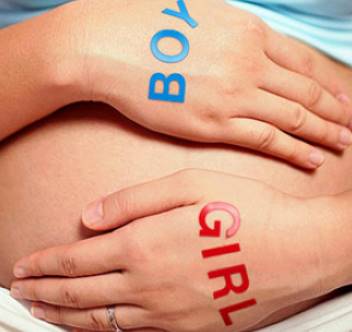
Keeping your cool
It is believed being relaxed when you conceive means you'll have a girl. If you're a worrier it’s going to be a boy.
But temperature may play a role too. Some say a man's testicles should be cool before you have sex if you want a daughter; for a son, warm them up.
This follows the belief about boxers versus briefs — go for tighty-whities if you want a boy, but hang loose if it’s a girl you are after.
Your child is what you eat
Many believe what you eat before conceiving may affect what sex appears nine months later.
If you want a boy...
If you want a girl...
The joy of sex
How you make love can also be an influence.
If you want a boy...
If you want a girl...
And finally ...
Some tales can’t be categorised. For example, some say if the hairline at the base of your last child's neck is a ducktail, your next baby will be a girl. If it's straight across, prepare for a boy. Or the baby's sex is determined by which partner is dominant in the relationship at the time of conception.

If you are looking for local babies and kid services across the Coast such as fun toddler classes, midwives, preschools, party ideas or more. Or you're looking for pet services including vets, kennels, pet shops and more check out our local Coastie directory links at Babies and Kids and Pet and Animal Services.
Many children plead with their parents for a furry companion, and the benefits of owning a dog are undeniable. Dogs not only teach responsibility and consistency but also offer unconditional companionship, particularly beneficial for children facing developmental challenges. From therapy assistance to being a reliable friend when parents are occupied, dogs play a significant role in family dynamics.
Here's a glimpse into some wonderful dog breeds that seamlessly integrate into family life:
With their lively personality and fluffy coats, Bichon Frise’s bring joy to any household. Regular grooming is necessary to maintain their appearance, but their hypoallergenic nature makes them suitable for families with allergies.
Highly intelligent and versatile, Poodles are excellent family pets also known for their hypoallergenic coats. Regular grooming is essential to prevent matting, but their friendly demeanour and trainability make them cherished members of any family.
Despite their intimidating appearance, Bulldogs are affectionate and ideal for families with kids. Their energy levels taper with age, aligning well with children's growth. Regular wiping is necessary to maintain their trademark wrinkles, but their loving and protective nature makes them cherished family members.
Known for their floppy ears and friendly demeanour, Beagles are great companions for children. However, their love for food requires careful monitoring to prevent obesity (and also stealing from the kid's plates!). Regular exercise and attention are essential to curb any potential behavioural issues, ensuring a harmonious family environment.





Renowned for their loyalty and intelligence, Collies are iconic family pets, epitomized by the legendary Lassie. While they may exhibit herding instincts, their gentle nature and adaptability make them ideal companions for children.
Labradors are renowned for their friendly disposition and adaptability, making them beloved family pets. While they require regular exercise and grooming, their loyalty and obedience make them invaluable companions for children.
With their gentle demeanour and love for outdoor activities, Golden Retrievers are perfect for active families. Despite some health concerns, their low-maintenance coats and trainable nature make them popular choices for households with children, especially those who love the great outdoors.
A crossbreed of Labrador Retrievers and Poodles, Labradoodles inherit the best traits of both breeds. Their intelligence, affection, and minimal shedding make them ideal family pets, providing companionship and joy to children and adults alike.
Loving and affectionate, Cavalier King Charles spaniels are known for their compatibility with both children and also with other pets. They are easy-going and enjoy a great play, and also show remarkable patience with children.
Each of these dog breeds brings its unique charm and qualities to family life, enriching the experience of growing up with a furry friend.
When you're pregnant, sometimes it's the little things you can't live without. Whether it's clothes to make it easier to move around, tips for sleeping better or something to soothe your skin, here are some tips on making life easier when pregnant.
These can be a great sleep aid. Good support for sleeping but also comfortable for wrapping around your body when sitting and a savior for back and hips.
Bra extenders can be very useful to be able to continue using your “smaller” bras for longer when pregnant. You can also purchase sleep bras which give you support at night if you are especially large.
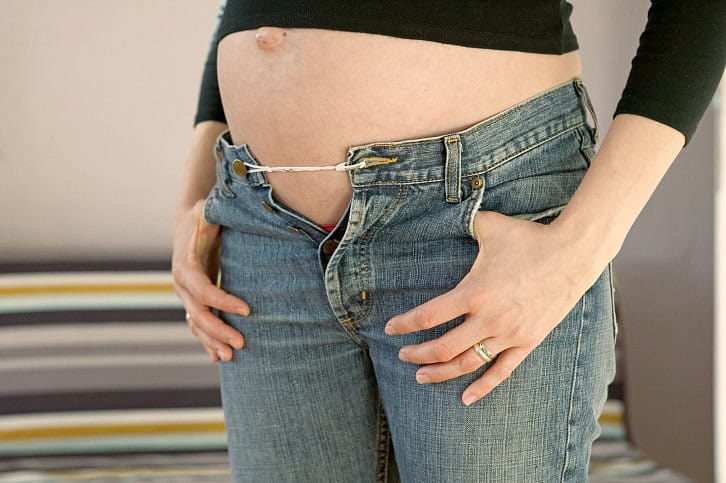
Often you can get skin irritations or rubbing when pregnant. Some solutions include aloe vera gel which can be a lifesaver in a number of situations. Cocoa Butter lotion can be very good for helping reduce stretch marks. It is said Bio-Oil helps in preventing tears during labour if you massage it into your perineum and olive oil is also supposedly good for stretch marks.
Wrap dresses can not only be comfortable but can be long lasting as you grow in pregnancy. Leggings with long T shirts are always a great lifesaver. Slip on shoes are great particularly if you have a tendency for your feet to swell and yoga pants can always be a good back up
Plus a great wardrobe extending idea is to use a hair tie or rubber band to extend your jeans or pants by putting it through the button hole and then looping both ends around the button or fastener.
Cats hold a unique position in the Felidae family as the only species domesticated by humans, with approximately 720 million pet and stray cats worldwide. Dating back to around 7500 BC, these beloved creatures have become integral members of countless households. But what else do we know about our enigmatic feline friends?

Thinking about having a guinea pig as a pet? For many guinea pigs are ideal pets for kids and families as they are cute, cuddly, tolerant of boisterous kiddies and are relatively low maintenance. Here are six good reasons to own a Guinea Pig:
However, guinea pigs can be messy!
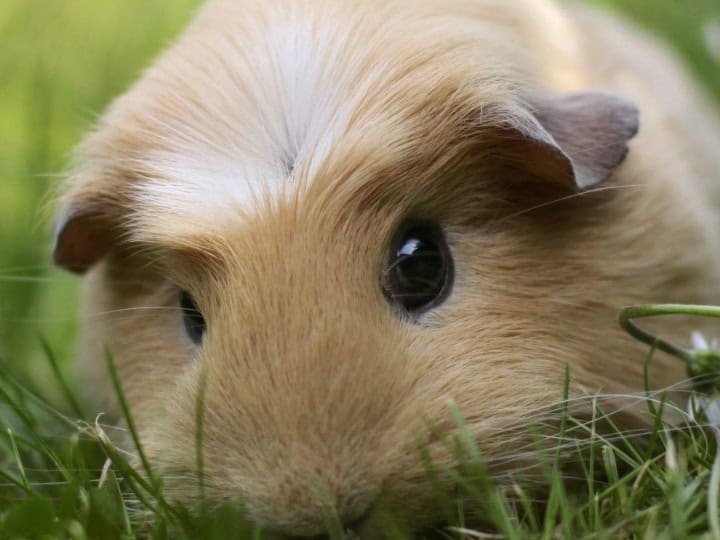
Guinea pigs are herbivores and require a high-fibre diet. They should have grass or grass hay available at all times. Lucernce or clover hay can be offered but not as the sole source of fibre as they are high in calcium and protein. Suitable grasses include clover, buffalo grass and oat grass. Guinea pigs also enjoy dandelion, milk thistle and a variety of fresh herbs.
If you are a clean freak you might want to think twice about a guinea pig. They are slobs. They poo in their food, water and bedding. They scatter their bed into their water and their water into their food. So because they can't do it, you need to check, clean and restock their food and water containers daily.
Enjoy!
Toys driving you mad? Here are some practical tips on controlling the mess!
Big deep toy boxes often don’t work well. Toys get jumbled into one big mess, small pieces get lost in the tangle and toddlers have no choice but to empty the whole thing on the floor to find what they want.
Collect lots of small, easy to handle, easy to carry, un-lidded containers, so children can sort their toys into groups – all the building things in one, wheeled toys in another, and so on.
Have fun with lots of big, coloured hooks labelled for coats, hats, bags, skipping ropes, dress-ups. It may not look elegant, but you and your children will be able to find what you need.
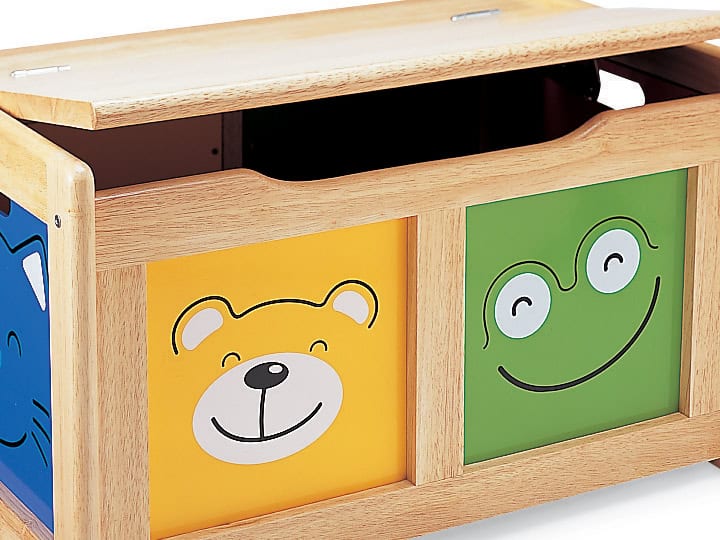
Use symbols or colours, even allocate one colour to each child if that works for you. Eg Sophie has a pink towel, pink toothbrush, pink hook for clothes and a pink box, or pink star on her box of toys.
Organise things into activity areas – puzzles, reading, art – so everything to do with that activity is there. Eg keep paper, aprons, wipe-up cloths and hanging pegs in one bin along with the pens, pencils, crayons, brushes and paints to make set up and cleaning up easy. During the day, convert a space from one activity to another by putting art stuff away and bringing out the puzzles bin.
Make finding stuff and putting it away fun and interesting to build good habits for a lifetime.
Preschool teachers have made an art of labelling boxes and crates.